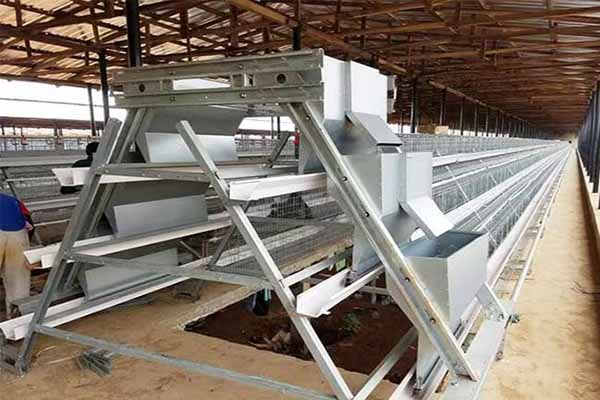Understanding Chicken Contract Farming in Kenya
Time : 2025-05-12
In recent years, chicken contract farming has become a significant part of the agricultural landscape in Kenya. This method of farming is gaining popularity among both farmers and investors due to its potential to increase productivity, provide a stable income, and ensure a reliable supply of chicken products to the market. In this article, we’ll dive into what chicken contract farming is, its benefits, challenges, and the role it plays in Kenya’s economy.
What is Chicken Contract Farming?
Chicken contract farming is a form of partnership between a farmer and a buyer (usually a poultry processing company or retailer) where the farmer agrees to raise chickens according to specific requirements set by the buyer. The farmer receives inputs like chicks, feed, and veterinary services from the buyer, while the buyer guarantees to purchase the chickens at a predetermined price and time.
The process starts with the farmer receiving a set number of chicks from the buyer. The farmer is responsible for the day-to-day care of the chickens, including feeding, watering, and ensuring they are healthy. Once the chickens reach a certain weight, they are transported to the buyer’s facility for processing and distribution.
Benefits of Chicken Contract Farming in Kenya
There are several reasons why chicken contract farming is becoming popular in Kenya:
1. Increased Productivity
Contract farming allows farmers to produce more chickens than they could on their own. By receiving technical assistance, training, and inputs from the buyer, farmers can improve their production techniques and increase the number of chickens they raise.
2. Stable Income
Under a contract, the farmer is guaranteed a minimum price for their chickens. This provides financial security and a stable income, as the farmer is not dependent on market fluctuations to sell their produce.
3. Access to Resources
Contract farmers have access to high-quality chicks, feed, and veterinary services. This ensures that their chickens are healthy and can grow to market weight more quickly.
4. Market Access
Buyers provide a ready market for the chickens raised under contract. This eliminates the need for farmers to find buyers, which can be a challenge in rural areas.
Challenges of Chicken Contract Farming in Kenya
Despite its benefits, chicken contract farming in Kenya faces several challenges:
1. Market Demand
There is a risk that the market may not be able to absorb all the chickens produced under contract farming. This can lead to overproduction and a drop in prices.
2. Financial Risk
Contract farmers may face financial risk if the buyer defaults on their payment obligations or if the chickens become ill and die.
3. Dependency on the Buyer
Contract farmers become dependent on the buyer for inputs, technical assistance, and markets. This can make it difficult for farmers to develop their own skills and become self-sufficient.
The Role of Chicken Contract Farming in Kenya’s Economy
Chicken contract farming plays a crucial role in Kenya’s economy, contributing to job creation, income generation, and food security. The following are some of the key contributions:
1. Job Creation
Contract farming provides employment opportunities for farmers, their families, and other rural residents. This helps to reduce poverty and improve living standards.
3. Income Generation
The stable income generated from contract farming enables farmers to invest in their families and communities, contributing to economic development.
4. Food Security
Contract farming helps to ensure a steady supply of chicken products in the market, contributing to food security in Kenya.
Conclusion
Chicken contract farming in Kenya is a promising approach to increasing productivity, providing stable income, and ensuring a reliable supply of chicken products. While it comes with its challenges, the benefits make it an attractive option for farmers and investors alike. As Kenya continues to develop its agricultural sector, chicken contract farming will undoubtedly play a significant role in its economic growth and food security.
, , , , 











